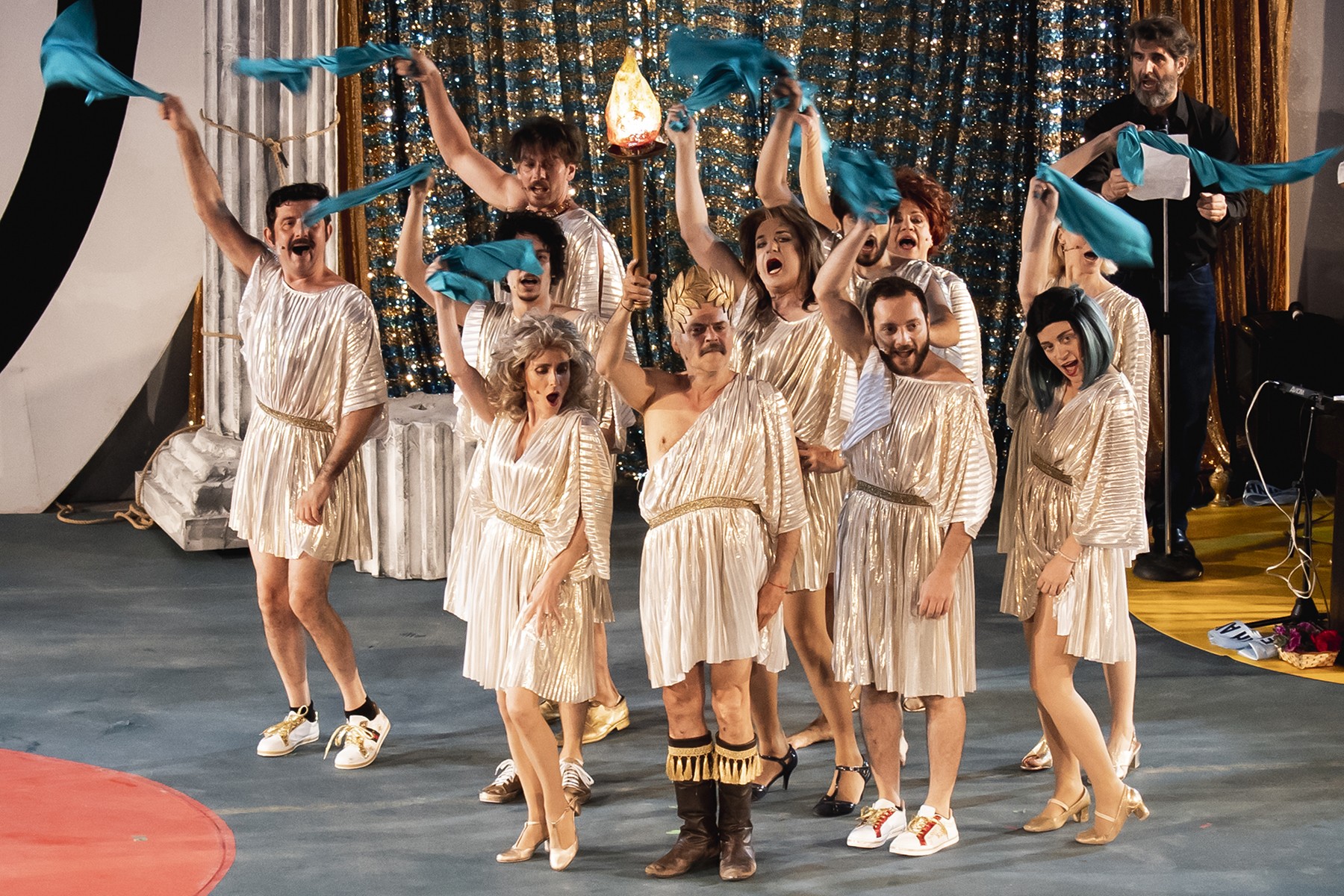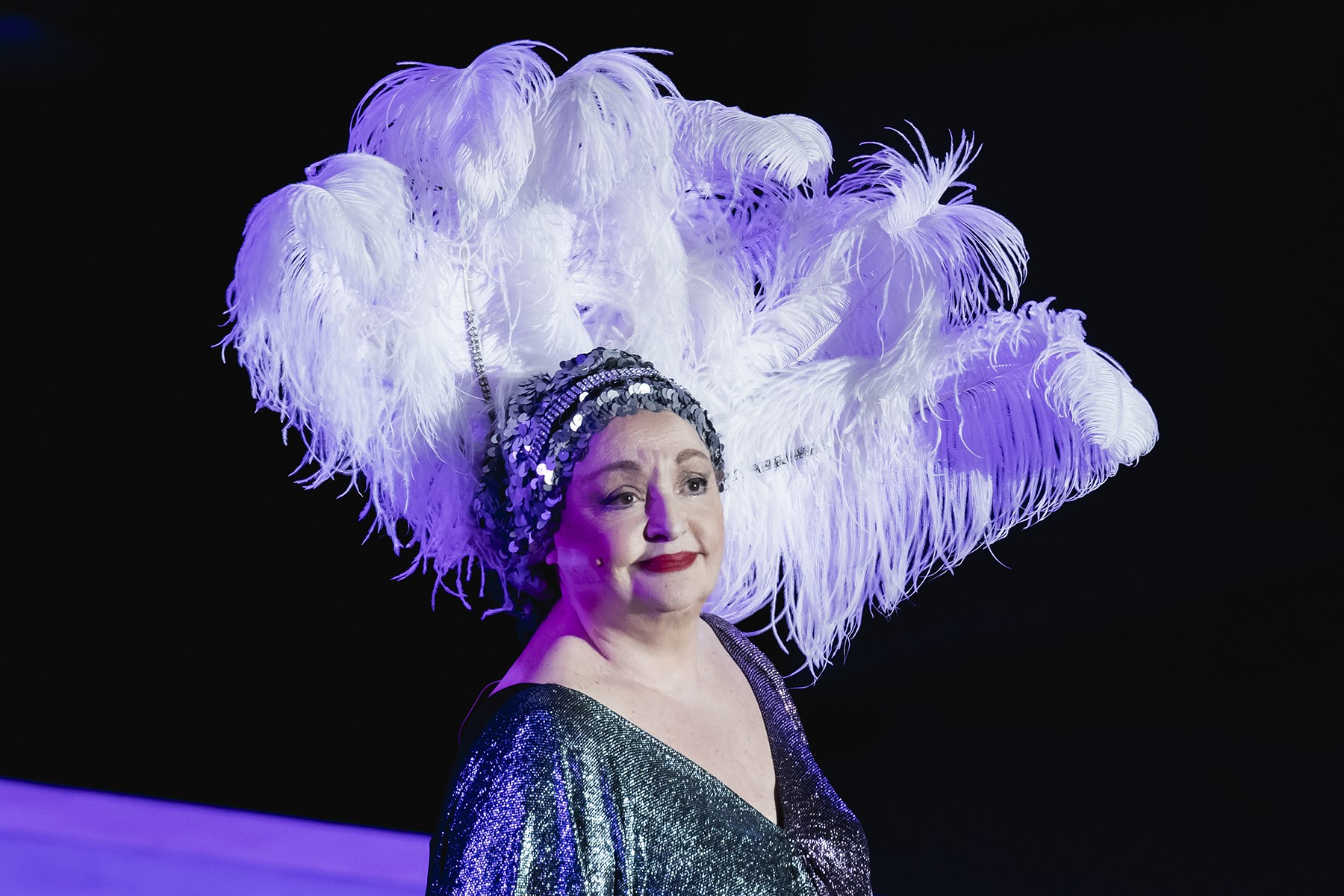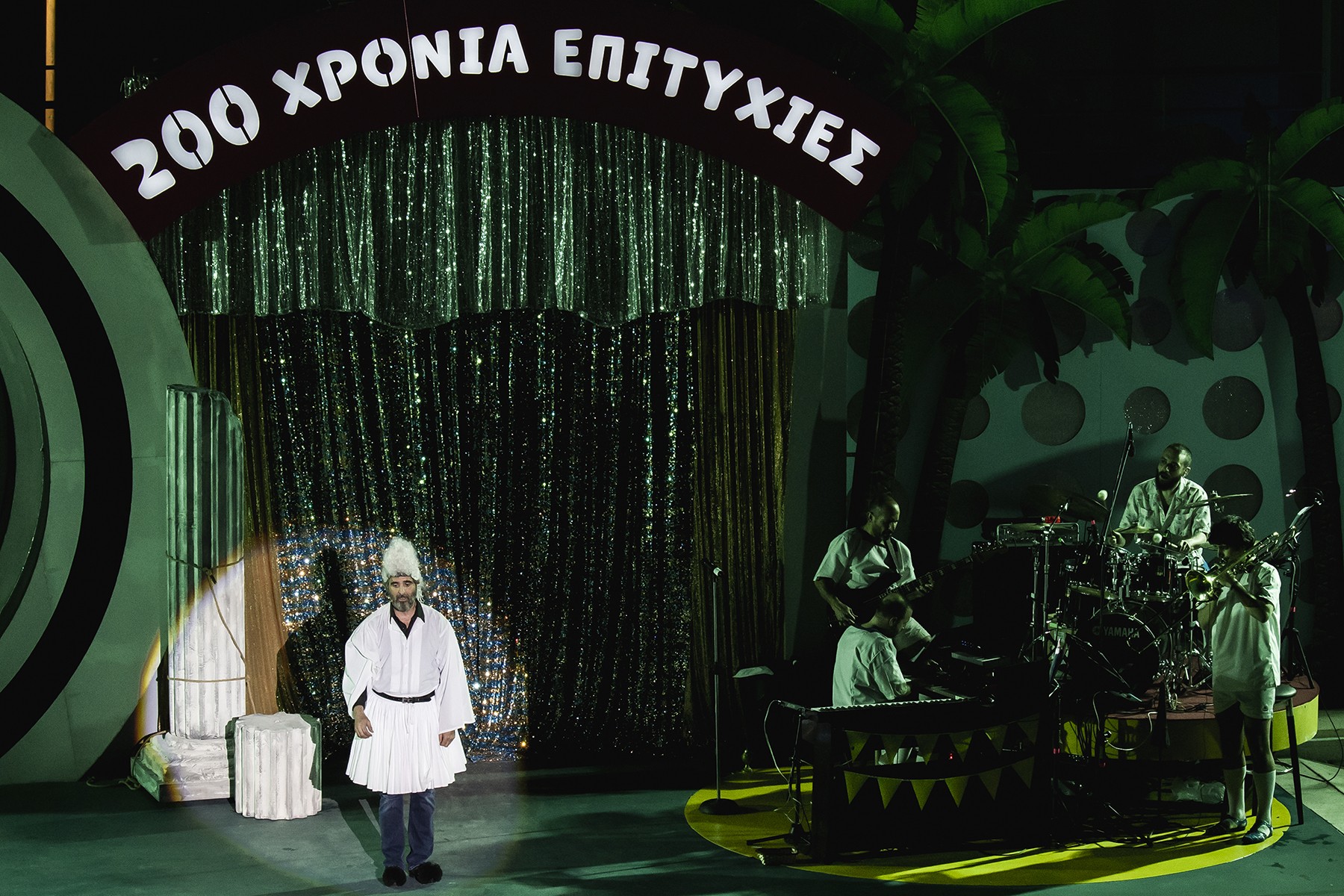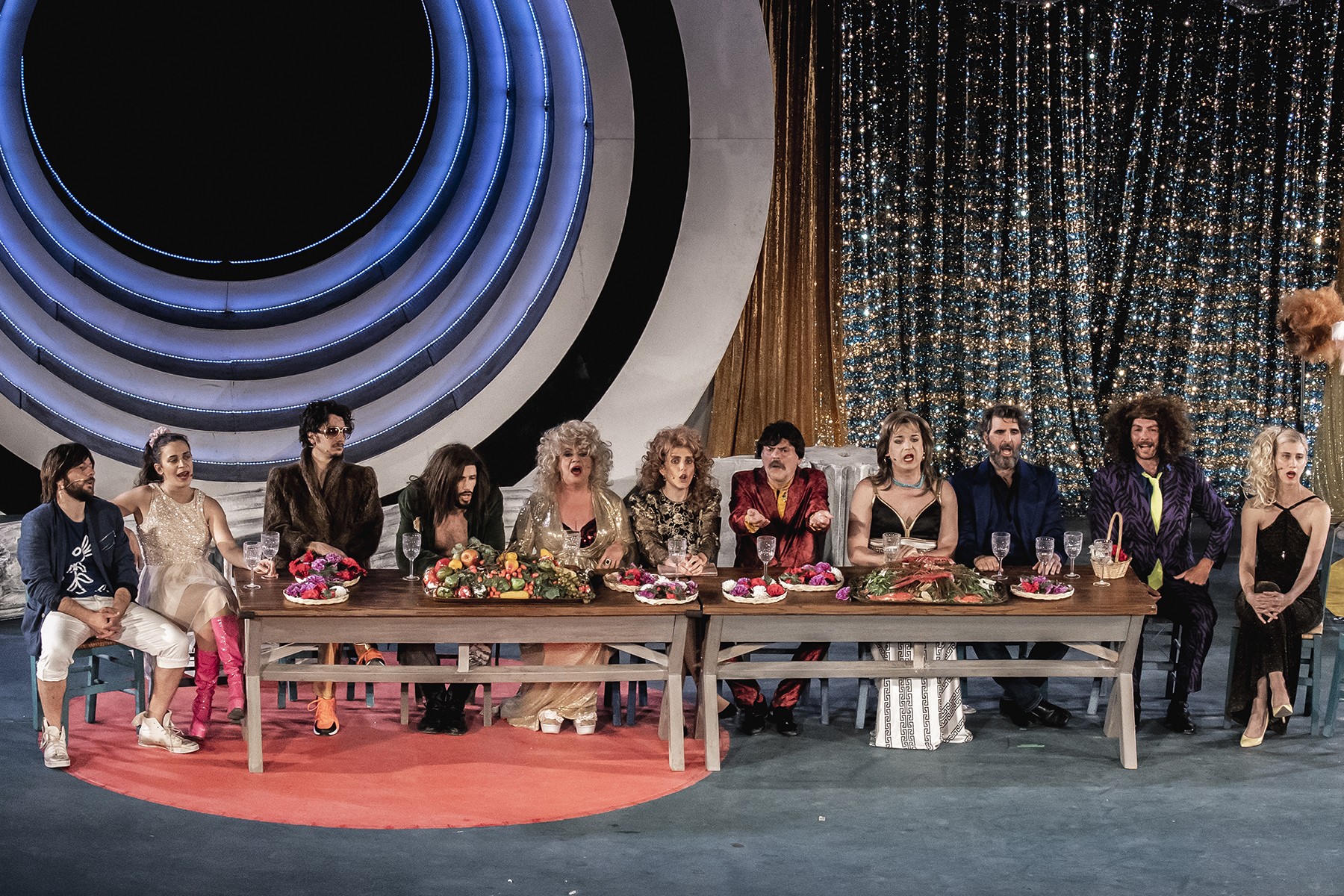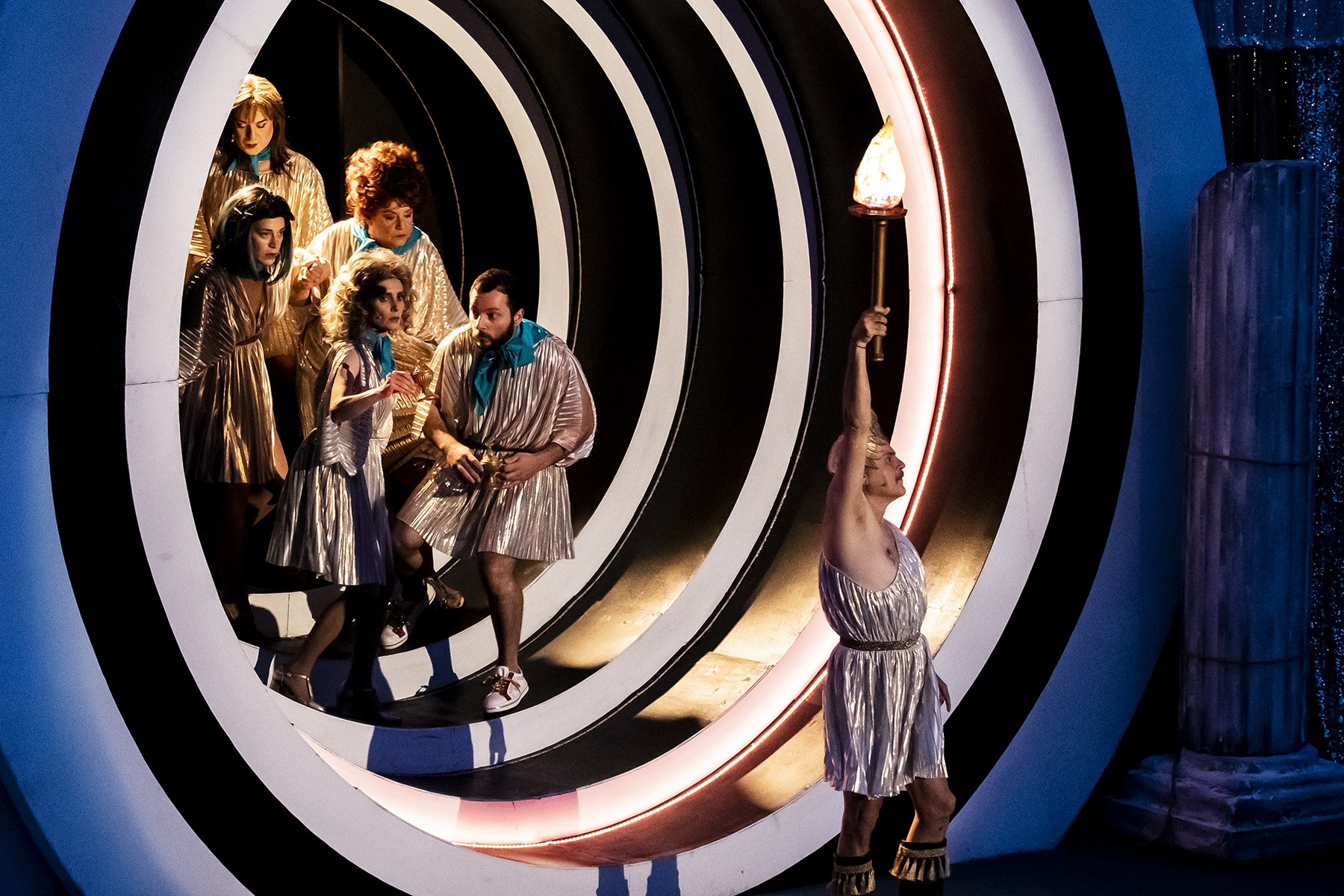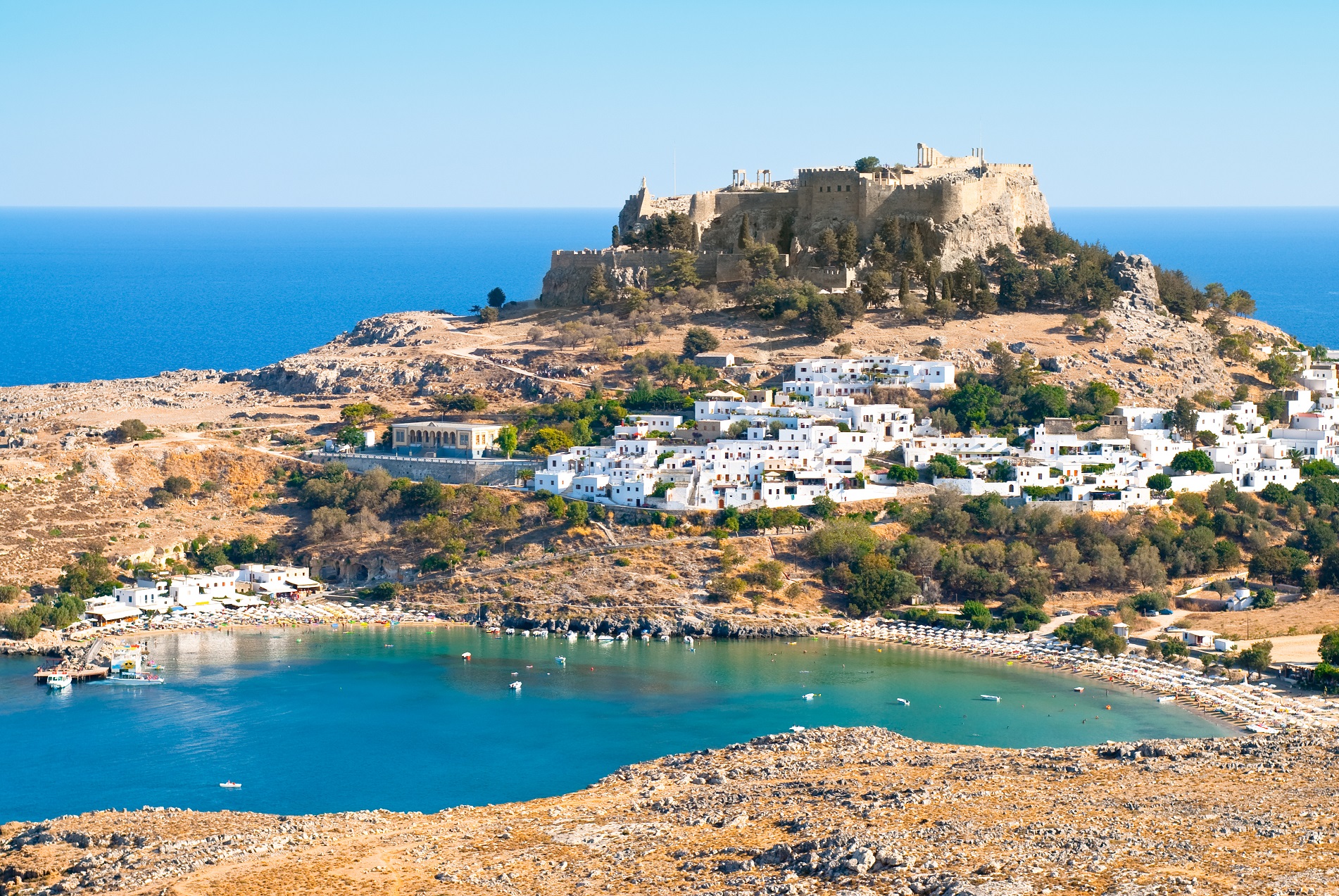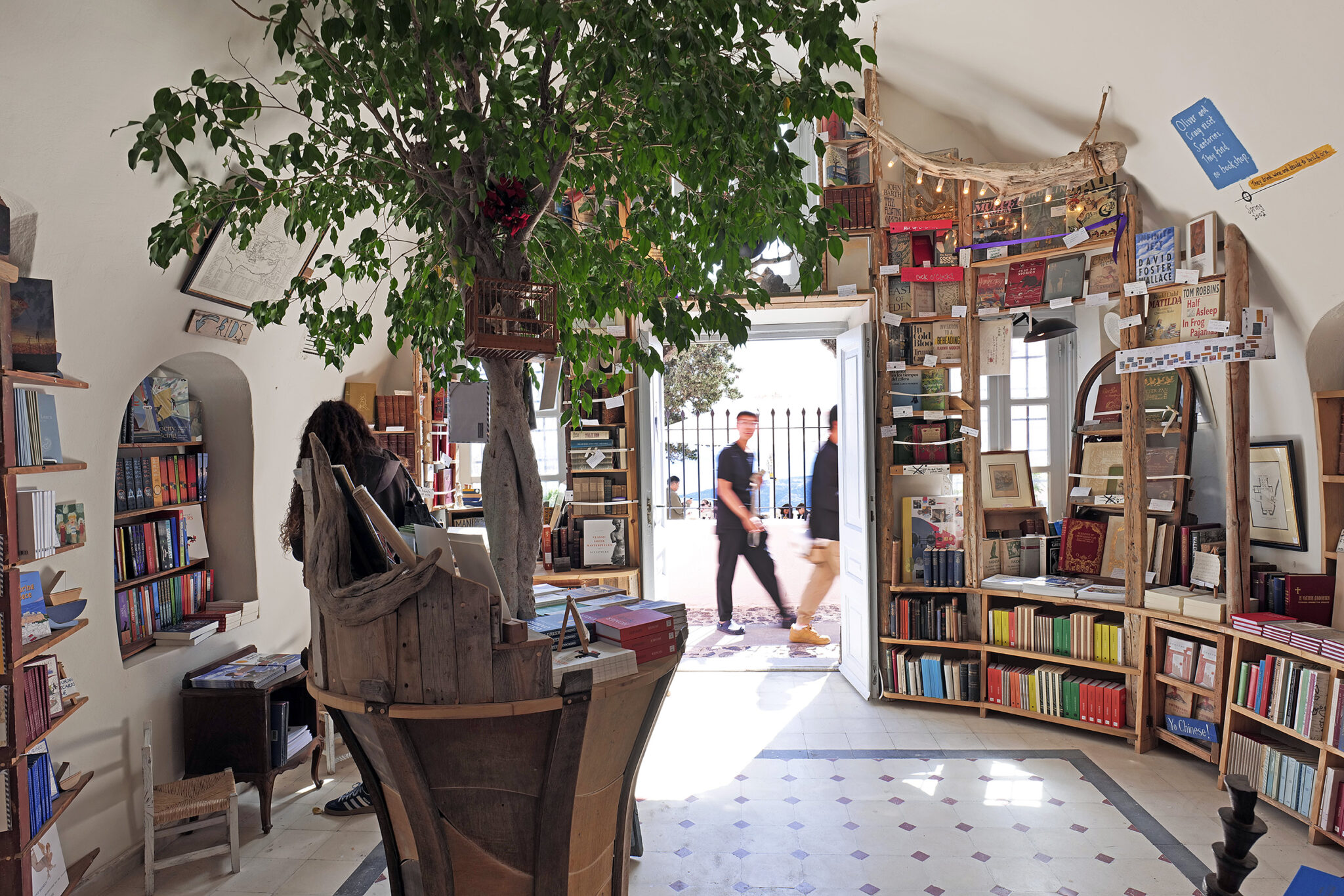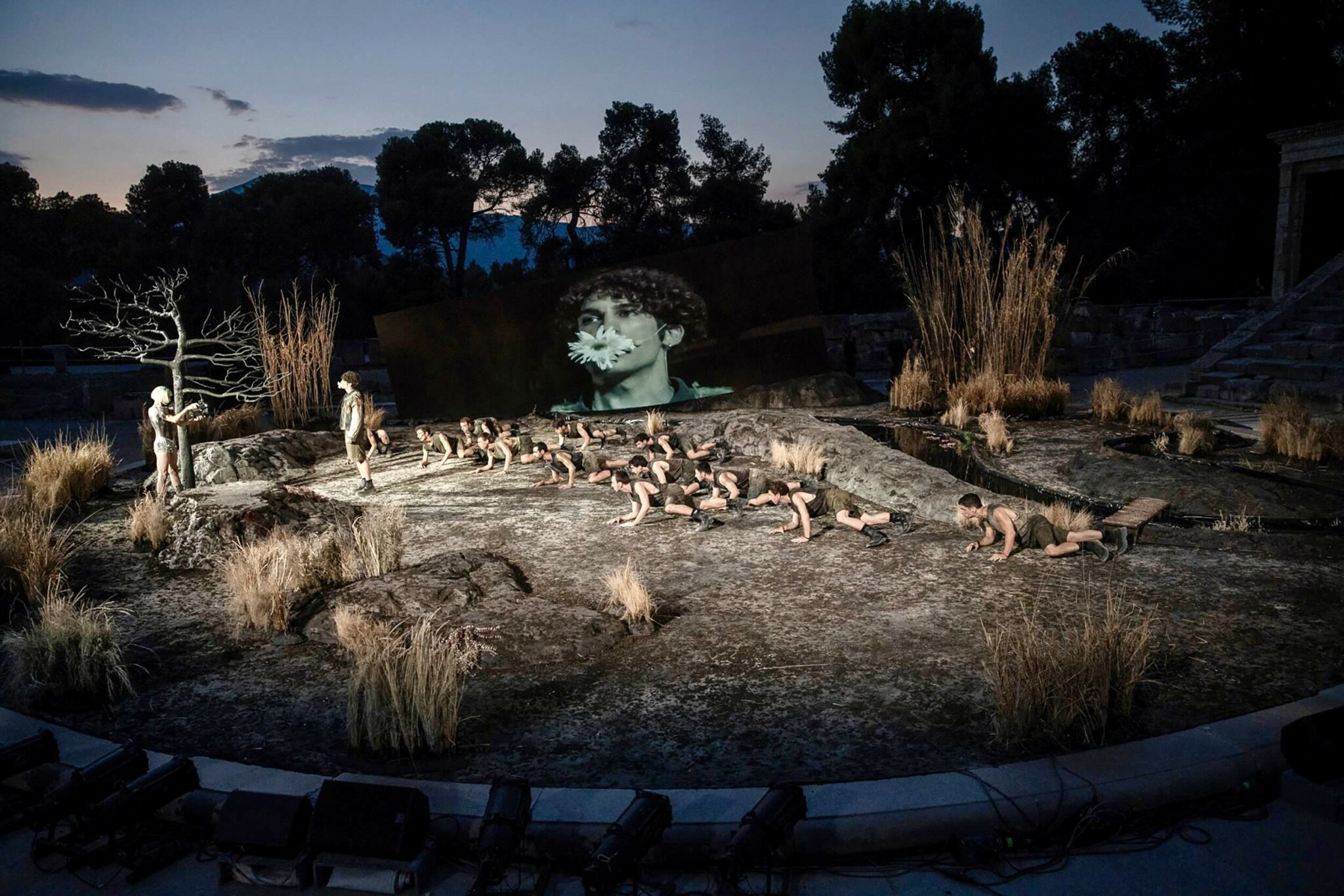Asked, during our interview, to pick out one line from the play “1821 – The Revue”, Dimitris Karatzas, the production’s director, choosing a few bitter drops of the country’s history that drip from the playscript, replied: “What exactly are we celebrating from 200 years ago? The educational system of 1800, place of women in society, submission, patriarchy, the violence?”.
Two hundred years of Greece is a long time, but not that long to forget events during the period. On the occasion of the 200th anniversary of the 1821 Greek Revolution, the Piraeus Municipal Theatre is presenting a revue of revolutionary spirit based on a concept by Karatzas and singer-songwriter Fivos Delivorias.
Following a period of cultural hibernation brough about by Covid-19, the stage of Piraeus’ Veakio Theatre is blooming again, in the summer of 2021.
Karatzas, through the interview, takes us to the stage and the inner thoughts of his mind.
Adventure of study, observation and research
“The material provided by these past 200 years is inexhaustible and chaotic. From where does one begin, and what does one grab a hold of in the effort to examine the Greek State and its symptoms. A year ago, in very close association with Fivos Delivorias and my assistant, Evdoxia Androulidaki, we took off on an adventure, studying, observing and researching, in an effort to determine who we [as a nation] are 200 years on, to identify the main and perpetual symptoms of Greeks, our failures and our successes. Because we are clinging on to the past for self-fulfillment and existence in a present that is probably bleak and not at all revolutionary.”
«Therefore, the basic aspects of the performance are: national identity; attachment to the past, the anxiety of modern man to be defined as a descendant of heroes and revolutionaries while remaining inactive during the present; patriarchy; gender-based violence; polarization; patriotism, which, if expressed without measure or tolerance for progress and modernisation, becomes a major source of annoyance; the commercialisation of everything, even the country, itself; national sense of misery; and a whole lot of other things that seek to criticise and satirise (with love) our contemporary situation 200 years following the founding of the nation».
Directorial approach
“The directorial approach does not seek to transform the revue format but, on the contrary, attempts to become acquainted with it, honour it, and keep it intact, [in order to] find our freedom through this format’s very chaotic and lively style.”
Why it is worth seeing this performance
“Because it raises a series of issues that have persisted for years, [presented] with lots of music, exceptional acting performances, and a playscript that aims to provoke thought and laughter. You know, all these months of isolation flattened us, so it is lovely and enlivening to be able to laugh and, through this laughter, think. Humour impacts everything, especially the mind, taking it a step further.”
Humour’s unsettling effect
The play belongs to a style of theatre that the director had, until now, not engaged himself with. I asked what the directorial difficulties and challenges were for a play of this style.
“Honestly speaking, it’s the most difficult project I have been called upon to do because it is completely beyond what I am familiar with and accustomed to. I suddenly faced a purely popular form of theatre that requires rhythm and immediate impact on the audience. This runs the risk of trying to elicit laughter without having something to say or suggest through the text and just wanting to tickle the spectator with clichés and banalities. I’m not interested in banana-peel comedy where the actor slips and tumbles, but humour that unsettles. This is what Fivos, the amazing cast, crew and I sought to achieve.”
«Just what was needed after lockdown»
«The thing I’m most happy to hear from the audience, these days, about the show, is: “This is exactly what we needed after lockdown”. I assume they mean the extroversion, intense energy exchanged with the amazing cast, and also that we’re addressing the present through a 200-year retrospective».
«Audiences for this production, as well as for cinema, concerts, and other performances are turning up in numbers. This is tremendously encouraging. People have missed the direct contact with art and, generally, crave for entertainment and exchange. Let’s not forget that the venues attended by the public are entirely safe with distancing measures intact and reserved seating. It’s the safest form of social gathering».
«We had settled too comfortably in our velvet seats»
I believe that the events of the pandemic have come as a massive shake-up and slap in the face for everyone. I think something will change in the overall theatrical offering. We will no longer be content with painless performances and good acting. Theatre will, once again, strive to become a popular form of art that will come into contact and conflict with society. Perhaps we had settled too comfortably in our velvet seats, TV-style shows and easy interpretations of challenging plays. We are living in intense social turmoil and change, and must assimilate.”
«We’re the same lot, recycled year after year»
I asked Karatzas about changes that need to be made in Greece’s cultural domain: «Firstly, there needs to be a Minister of Culture [with deep knowledge of the sector]. I hope one does come about. When one does come about, he or she will need to treat contemporary artists with respect, support the much-affected cultural sector, establish collective agreements for actors, both in the public and private sectors, and, naturally, offer support to new artists. There is no state initiative that offers young artists a platform and supports their work. We’re the same lot, recycled year after year. This gradually leads to a rut and deterioration».
Greece of 2221
“I imagine the Greece of 2221 as being humane, with equal rights for all. This is what we hope for and have not had over 2021 years.”
The 1821-2021 connection
Asked what the connection of Greece in 1821 and Greece of 2021 is, Karatzas replied: “That we still have a nation.”
«1821 – The Revue»
Concept: Fivos Delivorias – Dimitris Karatzas Playscripts: Lena Kitsopoulou, Giannis Asteris, Glykeria Basdeki, Kostas Maniatis, Kostas Kostakos, Kelly Papadopoulou, Fivos Delivorias.
Cast: Mirka Papaconstantinou, Eleni Kokkidou, Nikos Karathanos, Giorgos Gallos, Galani Hatzipaschali, Giannis Niarros, Mihalis Economou, Giannis Koukourakis, Giannis Klinis, Vasso Kavalieratou, Panos Papadopoulos, Ilias Moulas, Ioanna Piata. Guests: Lydia Fotopoulou, Maria Kavogianni, Martha Frintzila, Hristos Loulis



